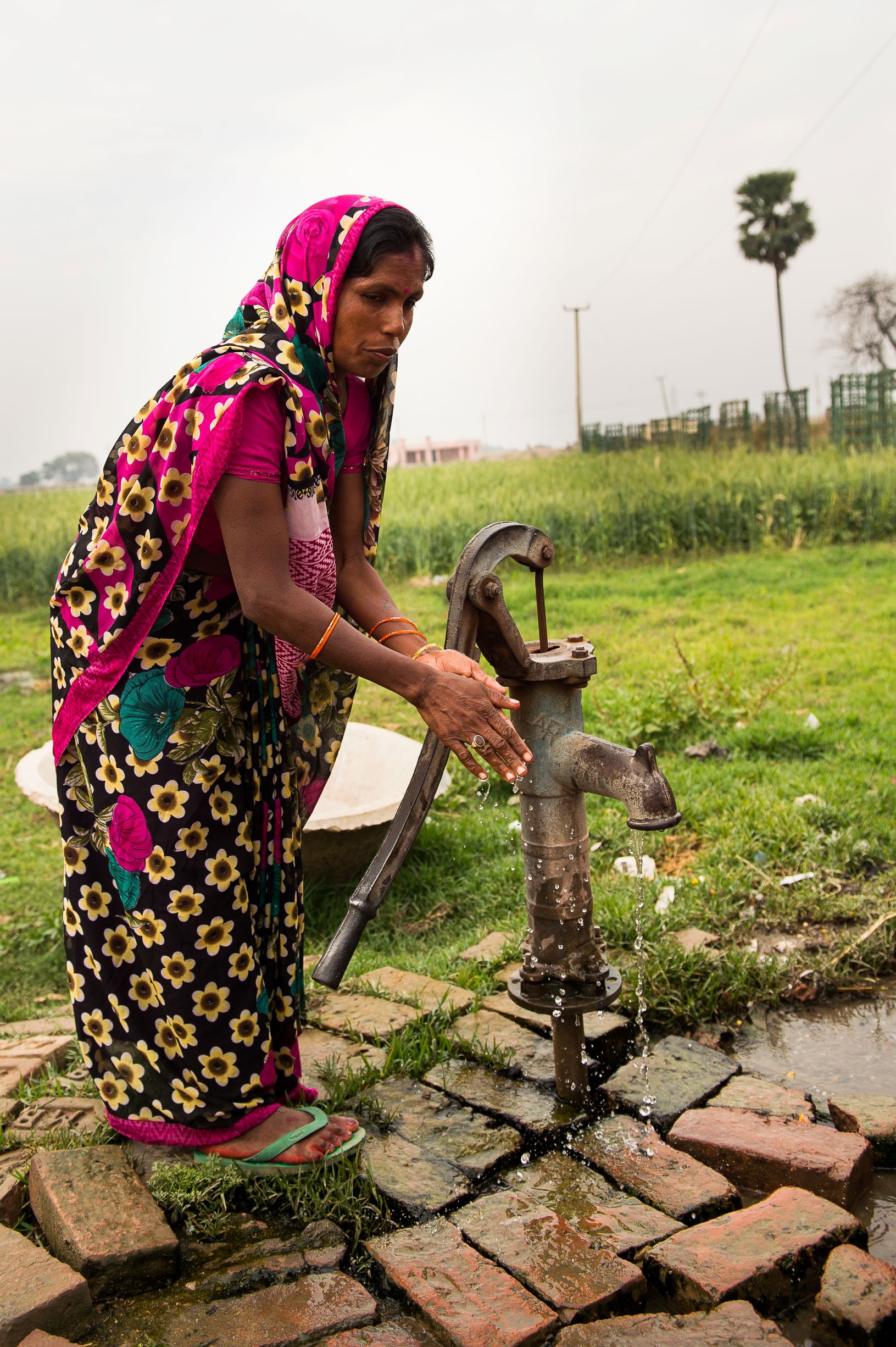
Climate change: In India, it links to disease outbreaks like diarrhea

Women and children will bear the brunt of climate change in India. Photo: PATH.
This year India witnessed severe bouts of heat wave across its plains. In the long summer, large parts of India faced severe water stress. As I write, sharp, intense spells of monsoon rain continue to create havoc. Even well-developed cities like Pune are struggling with the aftermath.
As a journalist, I have followed the impact of changing climate on rural parts of India, largely from the lens of how women cope. A few years ago, I attended a meeting convened by a leading child rights agency to begin discussions with sector specialists on climate resilience. Of the significant things I took away from those interactions was this: climate change in India will have the greatest impact on women and children. For instance, if women do not have access to clean water, outbreaks of disease including diarrhea will be accentuated. More women and children will be tasked to collect water, which means precious hours that could be dedicated to income-generation and education, respectively, would be lost. This could potentially undo all the gains that India has made in education.
Also with India’s achievements on the sanitation front, I wonder how water-stressed areas are going to cope. What are the technologies that factor in future challenges, like toilets that use less water? While technologies like faecal sludge management are being tested in smaller cities, is there robust science to support alternatives in areas where water will not be available?
Let’s for a moment think about the impact of smaller quantities of water per family. There’s a story oft told by my parents about their early life in Mattu, Ethiopia, raising my elder brother and me on two buckets of water – per week. If that indeed is the future of water-stressed areas in India, there are several things that Governments and communities need to begin to work on.
The Government’s Clean India campaign is now followed by the ambitious National Action Plan on Climate Change, which incorporates the mandate of the National Water Mission: “to ensure integrated water resource management helping to conserve water, minimize wastage and ensure more equitable distribution both across and within states.” Alongside, the Clean India campaign is also being paired with the Swasth (Healthy) India, which focuses on healthy child growth and development within the critical first 1000 days. There is also the Jal Jeevan Mission, a campaign for water conservation.
These ambitious campaigns aim to encourage people with access to water to understand that they need to be empathetic to water conservation. Yet far more critical is empowering communities in the water-stressed areas to go back to traditional forms of water harvesting and grey water reuse. As India has checked its infant mortality, educating communities to understand the importance of clean potable water will remain another great challenge.
On the other hand, what happens when it rains heavily? What preparedness is there? With negligible water harvesting mechanisms in place, many cities have witnessed precious water slip away during heavy rains. The monsoons also bring their onslaught of waterborne diseases, which impact children the hardest.
Though I sit and write this in a comfortable city, these realities are actually much closer than they originally seemed. This summer, my parents-in-law who live in rural Bhopal, moved to the hills way before the summer set in. For years, their rural home has been supported by ground water and four years of negligible rains meant they did not have water for the long summer months. When I last checked in, they had returned to Bhopal and the monsoons had arrived and they are yet to abate: a choice between too much water or not enough.
While working at PATH, global advocacy around diarrheal diseases was indeed where I learnt most about being prepared to changing scenarios. As India honors the memory of Mahatma Gandhi on his 150th birth anniversary today (October 2, 2019) by coming close to being Open Defecation-Free, what are the learnings that the Government can now leverage to be ahead of the climate stress?


